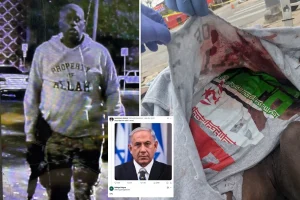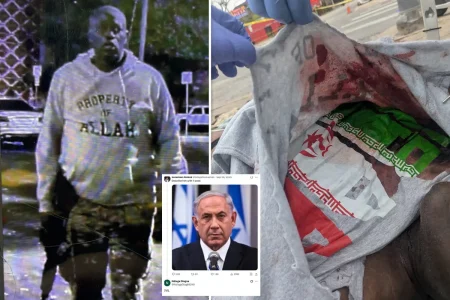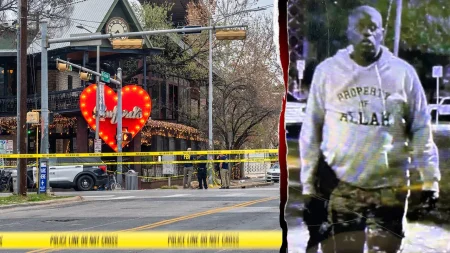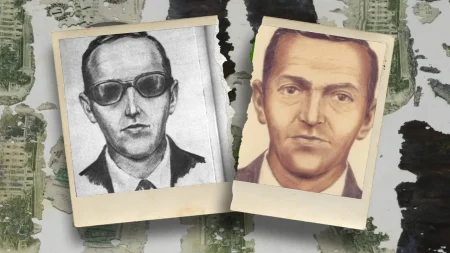Brian Driscoll, the acting director of the FBI, has emerged as an unexpected champion for the agency’s rank-and-file amid the Justice Department’s scrutiny of FBI employees involved in the January 6th riot investigation. His appointment itself was a stroke of accidental fortune, originating from a White House website error that mistakenly identified him as the acting director. This seemingly trivial error placed Driscoll at the center of a political maelstrom, where he has since become a bulwark against external pressure, defending the integrity of the FBI’s investigative process. Driscoll’s steadfast refusal to simply hand over the names of agents involved in the January 6th investigation, as requested by Justice Department officials, has resonated deeply within the FBI. His insistence on establishing a formal review process has earned him widespread respect and admiration from both current and former agents.
Driscoll’s quiet resistance against the Justice Department’s probe has transformed him into an unlikely folk hero within the FBI. His unconventional appearance, far from the stereotypical G-man image, has further fueled his appeal. Memes and satirical clips celebrating his stance have proliferated, providing a much-needed moment of levity in a climate of unease and anxiety. These humorous portrayals, depicting him as everything from a saint clutching the FBI handbook to a Batman-esque figure battling bureaucratic overreach, underscore the profound respect and appreciation he has garnered.
The accidental nature of Driscoll’s appointment, coupled with his unwavering defense of his colleagues, has added an almost mythical quality to his leadership. Former agents jokingly refer to his ascension as a providential mistake, recognizing the unique circumstances that placed him in this pivotal role. This narrative of a somewhat reluctant hero thrust into the spotlight has only amplified his appeal. Driscoll’s actions following a tense confrontation with Justice Department officials further solidified his image as a staunch defender of the FBI. The meeting, which sparked rumors of his potential dismissal, underscored the high stakes involved in the investigation and the pressure being exerted on the agency.
The scope of the January 6th investigation, involving approximately 2,400 cases and 6,000 FBI personnel, highlights the potential impact of the Justice Department’s scrutiny. Driscoll’s refusal to comply without a formal review process signaled his commitment to protecting his colleagues from what he perceived as an overreaching inquiry. This act of defiance, viewed as a defense of the FBI’s integrity, solidified his position as a champion of the rank-and-file. An email sent by James Dennehy, the top agent in the New York field office, further illuminated the internal dynamics at play within the FBI. Dennehy’s message, praising Driscoll and his deputy, Robert C. Kissane, as “warriors,” characterized the situation as an internal “battle” for the agency’s soul. This language, invoking notions of conflict and defense, underscores the gravity of the situation and the intense pressure being felt within the FBI.
It is worth noting that Kissane, a highly respected counterterrorism agent, was initially considered the likely candidate for acting director, with Driscoll expected to serve as his deputy. However, the White House website error inadvertently elevated Driscoll to the top position, a mistake the administration never corrected. This unexpected turn of events placed Driscoll, who had only recently taken charge of the Newark office, directly into the line of fire. His subsequent actions, particularly his resistance to the Justice Department’s demands, demonstrated his unexpected resilience and unwavering commitment to protecting the FBI.
Driscoll’s background, characterized by an impressive career marked by both operational experience and leadership roles, further strengthens his standing. His experience as a special agent with the Naval Criminal Investigative Service, his selection to the FBI’s elite Hostage Rescue Team, and his deployments to Afghanistan and Iraq with special operations units all speak to his capabilities. Notable incidents, such as the rescue of a young hostage in Alabama and participation in a high-risk raid in Syria, underscore his experience in high-pressure situations. These experiences, combined with his tenure supervising terrorism cases in New York, have equipped him with a unique perspective and a deep understanding of the complexities of law enforcement and national security. His experience leading the Hostage Rescue Team, responsible for the most dangerous domestic missions, speaks volumes about his leadership capabilities and his ability to handle high-stakes scenarios. Driscoll’s colleagues describe him as unflappable, a quality undoubtedly honed through years of operating in high-pressure environments. This composure and unwavering commitment to principle have become particularly valuable in his current role, where he faces intense political scrutiny and pressure.











